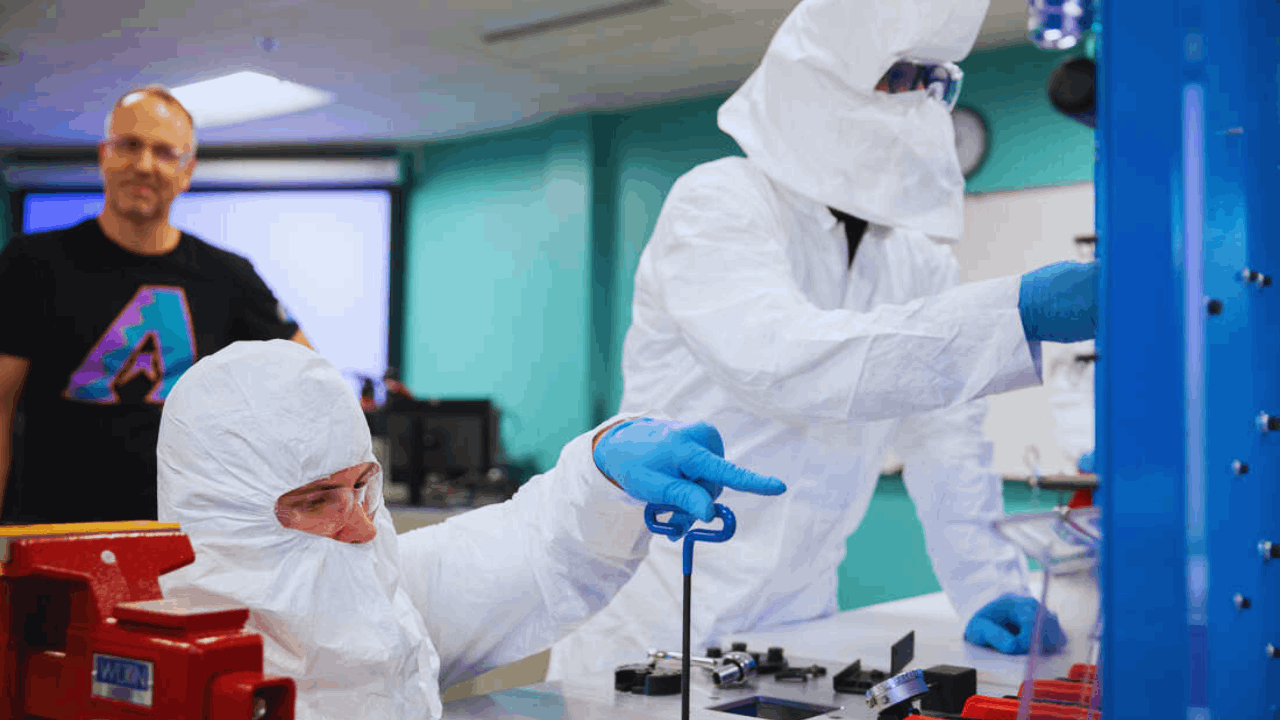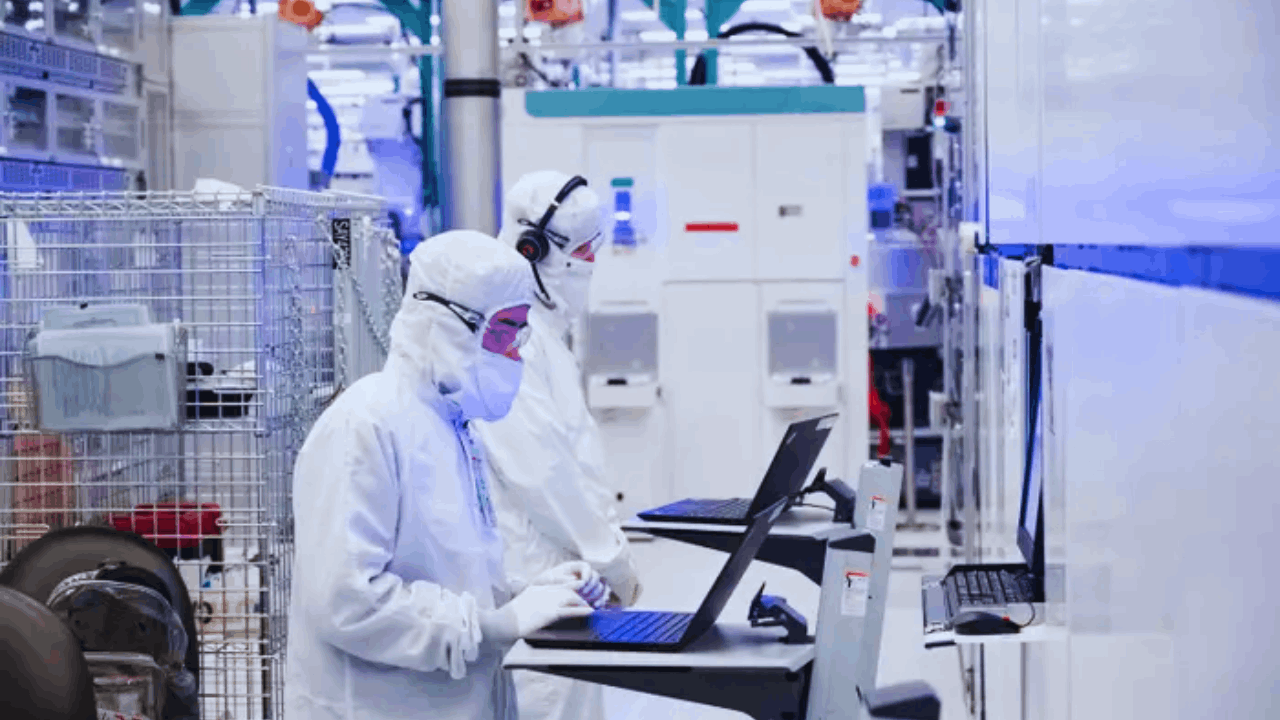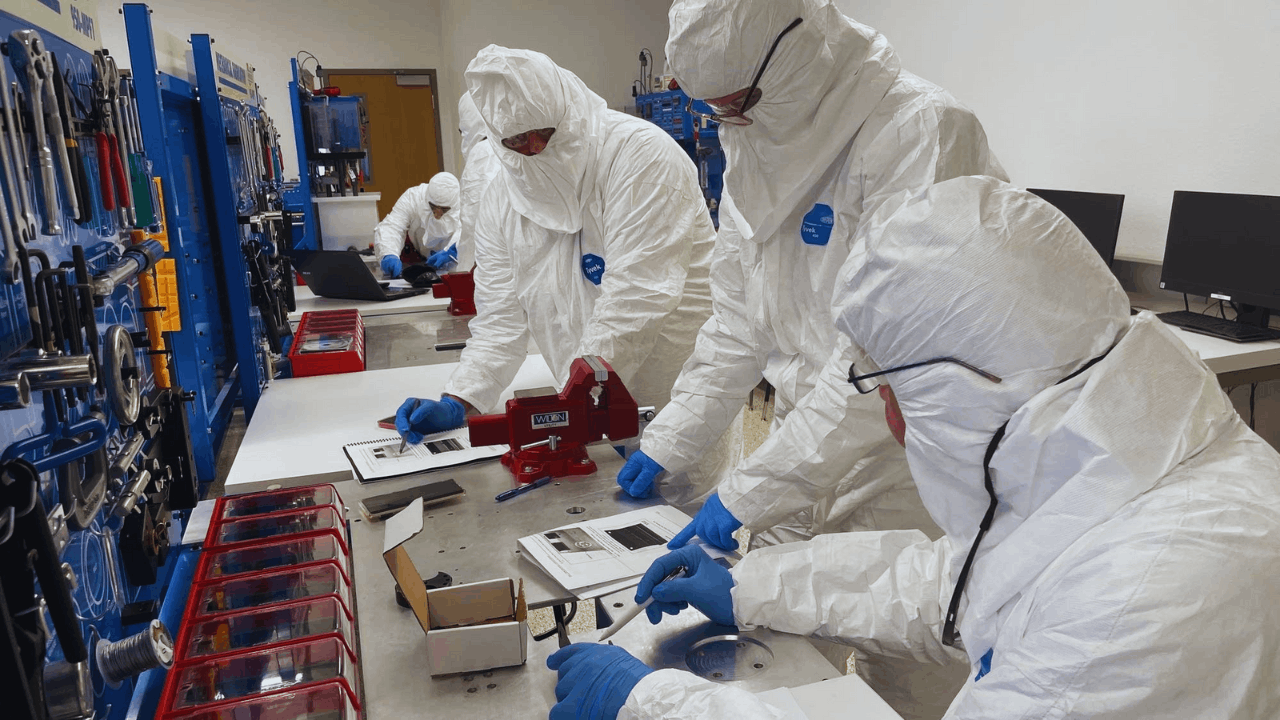If you’re actively looking for semiconductor manufacturing jobs, this is the right time to act.
The global demand for semiconductors has surged, creating job openings in fabrication, engineering, testing, and operations. Whether you’re experienced or new to the industry, there are roles for every level.
This article covers the types of jobs available, their benefits, requirements, and how you can apply today.

Explore Available Jobs in Semiconductor Manufacturing
Semiconductor manufacturers are hiring across multiple departments.

From hands-on production to backend logistics, roles are available in nearly every function.
Cleanroom Technician and Maintenance Jobs in Fab Facilities
Cleanroom technicians maintain contamination-free environments and handle wafers during processing. These roles require attention to detail and the ability to follow protocols precisely.
Equipment maintenance technicians support fab tools and perform preventive servicing. Both roles are crucial to minimizing downtime and enhancing productivity.
Experience in electrical or mechanical repair is often preferred, but not always required.
Process and Manufacturing Engineer Positions
Process engineers monitor and optimize production steps like etching and deposition. They troubleshoot defects and improve equipment parameters for better yield.
Manufacturing engineers focus on operational efficiency and output consistency. These roles typically require engineering degrees and familiarity with data analysis. Job openings are common in both IDMs and foundries.
Opportunities in Assembly and Packaging
Assembly operators and packaging technicians complete the final steps in chip production.
They manage die bonding, encapsulation, and inspection. While some tasks are manual, others involve automated systems.
Training is usually provided for entry-level staff. These jobs are available in backend facilities and contract manufacturing plants.
Quality Control and Yield Analyst Careers
Quality control specialists inspect wafers, analyze defects, and support reliability testing.
Yield analysts identify production losses and recommend corrective actions. These positions demand a strong grasp of statistics and process monitoring tools.
Experience with root cause analysis is a plus. These roles are key to maintaining high manufacturing standards.
Benefits of Working in Semiconductor Manufacturing Jobs
Jobs in this sector offer strong financial rewards and long-term career development.

You also gain exposure to high-tech work environments and industry-leading innovation.
Competitive Pay with Bonuses and Shift Premiums
Most roles come with attractive base salaries that include shift differentials and overtime bonuses.
Pay increases with experience and performance metrics. Night shifts and weekend work often receive premium compensation.
Some companies offer annual bonuses based on individual or site-level output. These packages make semiconductor jobs financially appealing.
Continuous Training and Career Growth Paths
Many companies offer structured training to help employees grow into advanced roles. Cross-training across departments is common and encouraged.
Workers can gain certifications, participate in improvement teams, and even move into engineering or supervisory roles.
Career progression is built into the job structure. That makes it easier to grow within one employer.
Modern Facilities and Global Mobility
Manufacturing is performed in clean, automated environments with the latest equipment.
Employees use robotic arms, vacuum chambers, and advanced diagnostic tools. Many companies also operate internationally, opening up global transfer opportunities.
This exposure to world-class technology improves skills and opens career doors. It’s a forward-facing industry with constant evolution.
High Demand Brings Long-Term Job Security
Chips are essential in electronics, vehicles, and industrial systems, keeping demand high year-round.
New fabs are being built globally to meet supply needs. This growth translates into job stability across all levels of employment.
Even during downturns, production continues due to industry necessity. It’s one of the few manufacturing sectors with consistent hiring momentum.
Why You Should Apply for Semiconductor Manufacturing Jobs
Applying now means entering an expanding field with excellent potential.

These jobs offer not just stability but active involvement in global innovation.
Hiring Surge Creates More Open Roles
Recent chip shortages revealed how essential semiconductors are, prompting companies to accelerate hiring.
Skilled and entry-level applicants are in high demand across sites. Many jobs now include fast-track onboarding or paid training.
The urgency to fill roles gives applicants better chances. Now is the time to break into this growing field.
Upward Mobility is Built Into the Industry
Technicians can grow into leads or tool owners, and engineers can shift into R&D or management.
Companies often promote internally and reward tenure. Job levels are clearly defined with mapped-out paths.
Those who show initiative find advancement opportunities. The structure is ideal for long-term career planning.
Your Work Impacts Global Products
Chips built in these fabs end up in phones, laptops, medical devices, and cars. Every employee plays a role in shaping global technology.
That connection brings purpose to daily work. Knowing that your tasks support worldwide systems is highly motivating. It’s work with real-world consequences.
Problem Solvers Thrive in Manufacturing
Production environments often face mechanical or process-related challenges. Workers are encouraged to identify issues and propose improvements.
This active approach to problem-solving keeps the job engaging. If you enjoy figuring out solutions and collaborating with others, you’ll fit right in. Each day offers something different.
Requirements for Semiconductor Manufacturing Jobs
While requirements vary, employers look for a mix of technical skills, discipline, and the ability to adapt to fast-paced environments.

Ensure you meet these qualifications before applying.
Education and Technical Background Expectations
Technician roles often require a high school diploma or vocational training. Engineers need degrees in electronics, mechanical, or industrial disciplines.
Experience with cleanroom tools, measurement devices, or automation systems is useful. For advanced roles, employers may seek graduate-level credentials. Most job descriptions outline specifics clearly.
Physical Readiness and Attention to Detail
Manufacturing involves time on your feet, working in suits, and handling small components. Physical stamina and fine motor skills are important.
Tasks must be completed with consistency and minimal error. Many positions also include repetitive actions, requiring strong focus. Employers value candidates who show precision and discipline.
Communication and Coordination Skills
Production lines require teamwork and clear communication. Employees must relay tool issues, log activities, and attend daily shift meetings.
Writing shift notes and following protocols is standard. Being able to collaborate with others across shifts or teams is essential. Language skills in English or the local language are usually required.
Flexibility to Work Non-Standard Schedules
Fabs run around the clock, and most jobs require shifts, weekends, or overnight coverage. Companies often provide rotating schedules and shift incentives.
Candidates who can adapt to non-traditional hours are prioritized. Attendance and punctuality are closely tracked. Flexibility is a core part of the work environment.
How to Apply for Semiconductor Manufacturing Jobs
The application process is simple but requires attention to accuracy.

Companies use digital systems to screen, schedule, and assess applicants.
Find the Right Companies and Job Portals
Start by researching major semiconductor producers and suppliers. Visit their career sections and search by region or job category. Tech-specific job boards may also list relevant openings.
Read job descriptions carefully and identify roles that match your background. Set alerts to track new listings quickly.
Craft a Targeted Resume and Clear Application
Customize your resume for each position by highlighting industry-relevant skills and achievements. Emphasize any experience in cleanrooms, electronics, or equipment handling.
Keep formatting clean and use terminology found in the job listing. Your application should be complete, honest, and easy to scan. Accuracy and presentation count.
Prepare for Assessments or Interviews
Many employers use online tests to gauge technical aptitude or situational thinking. Interviews can be conducted on-site, virtually, or by phone and often include questions about safety or behavior.
Some technical roles may include simulations or whiteboard tasks. Be prepared to explain past experiences and demonstrate your enthusiasm clearly. Be professional, focused, and prepared.
Stay Engaged After You Apply
Follow up if you haven’t received updates within a week or two. Log in to your job portal to track status. If declined, check if other similar roles are open.
Showing steady interest can help with future consideration. Keep applying to multiple positions to improve your chances.
Conclusion
If you’re ready to apply for semiconductor manufacturing jobs, there’s no better time than now. The industry needs skilled, motivated workers across all functions.
Identify jobs that match your profile, polish your resume, and submit your application confidently. Your next career in high-tech manufacturing could start today.












